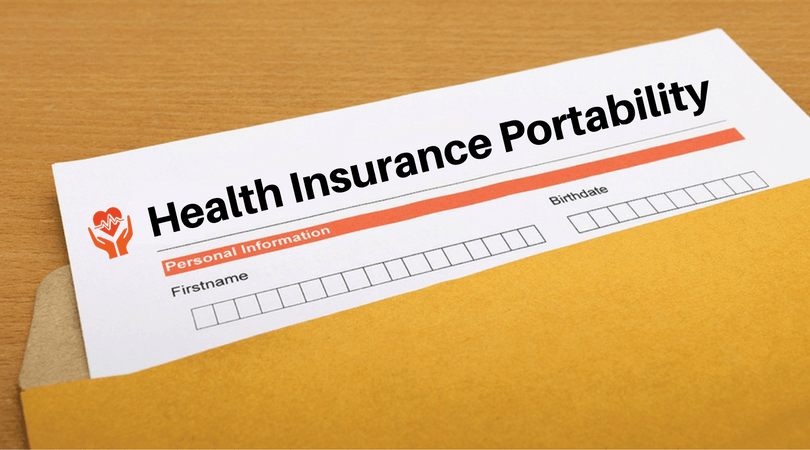If you’re reading this article, you’re probably disgruntled with your current health insurance plan and are looking to port your policy to a new insurance company. Portability is a common feature in health insurance plans and policyholders can choose to port their policy for a number of reasons. One may not be satisfied with the quality of service, the amount of coverage, the claims process, sum insured amount, or may have found a better plan offered by a competitor. Under these circumstances, one can port to a new health insurance policy.

However, there are a number of important facts about portability you should know before you begin the process.
Facts about health insurance portability
There are certain underwriting facts you should know before you start thinking about porting your policy. Here are a few facts that will be helpful to you:
- Notice period: If you plan to port to a health insurance plan offered by a different insurance company, you are required to inform the new insurance company at least 45-60 days prior to your policy renewal date. You will have to submit the request along with details of your previous health insurance policy.
- Acceptance of application by the new insurer: The new insurance company, upon receiving the request to port to their company, will contact the current insurance company and verify all facts and figures. The company can either accept or reject the application. If, however, the company does not respond in 15 days, the application will be mandatorily accepted.
- Policy status: Only a policy that is in-force can be ported. If the policy has lapsed or has a break, the request may not be accepted. Make sure you submit all the documents to prove the continuity of your policy.
- Sum insured: On porting to a new health insurance policy, you will have to choose the same sum insured as your current policy. If the new insurance company does not offer the same sum insured, you will have to choose the nearest amount, higher than the existing sum insured. In case of a higher sum insured, the additional amount will be issued as a separate policy which will be considered a fresh policy under the new insurer.
- Type of health insurance: The portability option is available only for indemnity plans and not defined benefit plans. Individual as well as family floaters can be ported. If you have a group insurance policy and would like to port to an individual insurance policy, you can only do so within the same company. A new health insurance company may or may not accept the request to port from a group policy to an individual policy as the level of risk is high.
- Waiting period: It is very important to find out about the transfer of the waiting period you have completed under your current insurance policy. This means that when you port to a new policy, the waiting period you have already completed will be taken into consideration. This, however, will be applicable only to the sum insured amount that is equal to your current sum insured amount. Since any additional amount added will be considered as a fresh policy, the waiting period already completed will not be considered.
- Current health condition: The new health insurance company will find out your medical history and also request for details on the current health status as the policy will be issued basis the current health status and not the health status when your current policy was purchased. The new insurer, on evaluating your health condition, can accept or reject your request to port. The company may even apply a waiting period on acceptance.
- Premium: Since the nature of your policy will remain the same under the new insurer, the premium will essentially be the same. However, on choosing a higher sum insured, you may have to pay a higher premium amount. Also, depending on your current health condition, the company may increase the premium or apply a co-pay clause.
- Claims history: The claims history forms an important part of the verification process by the new health insurance company. If you have a history of bad claims i.e. rejection due to an exclusion, the company may decline the request. However, if the new company believes that the ailment, for which the claim was rejected, will not lead to any major health issue in the future, it may accept the request to port.
Therefore, if the renewal date for your health insurance plan is nearing and you are dissatisfied with the plan or the insurance company, look around for a similar plan offered by a different insurer who offers better services. Do not push the task of porting your policy for later as you can port to a new policy only at the time of renewal.





